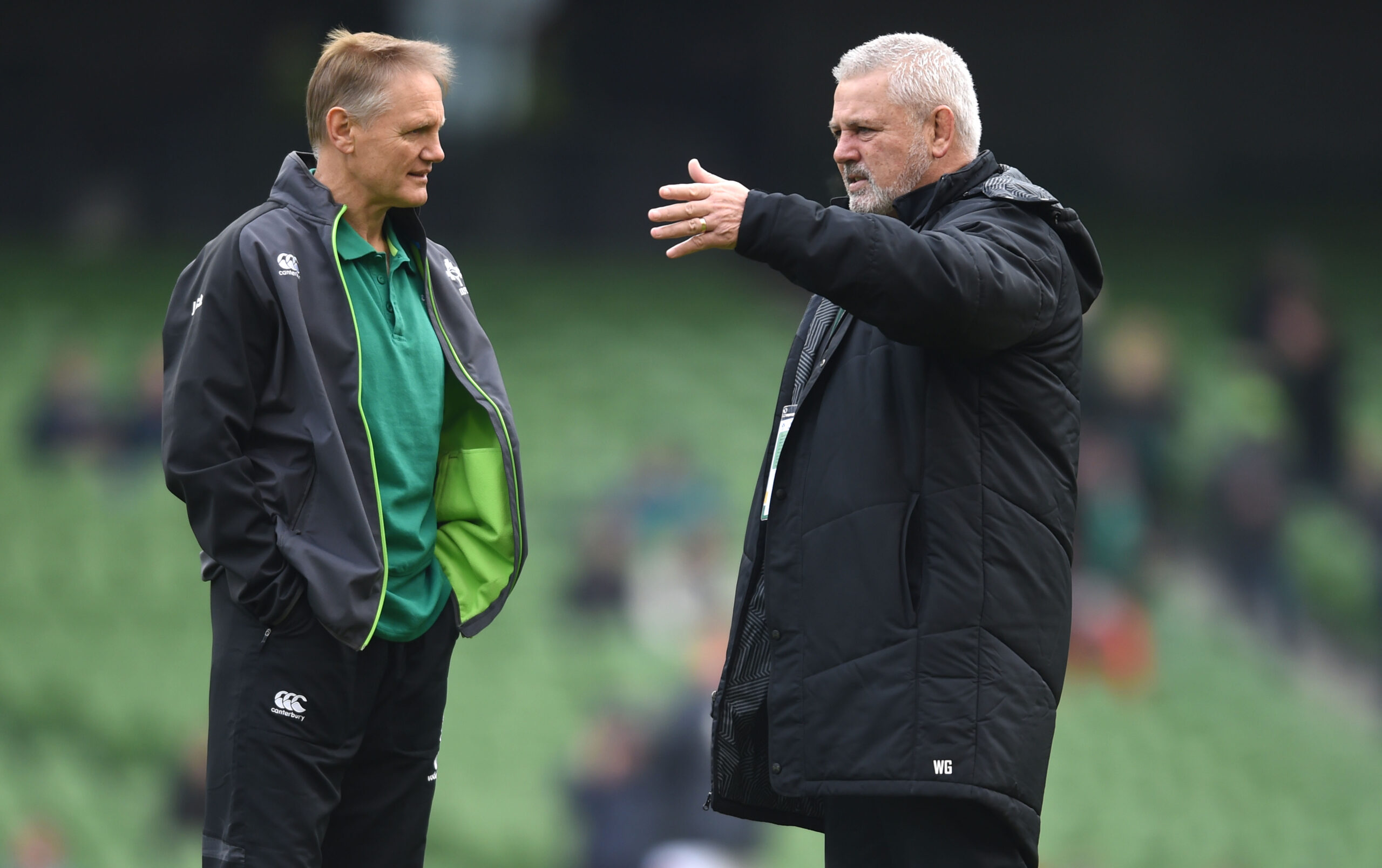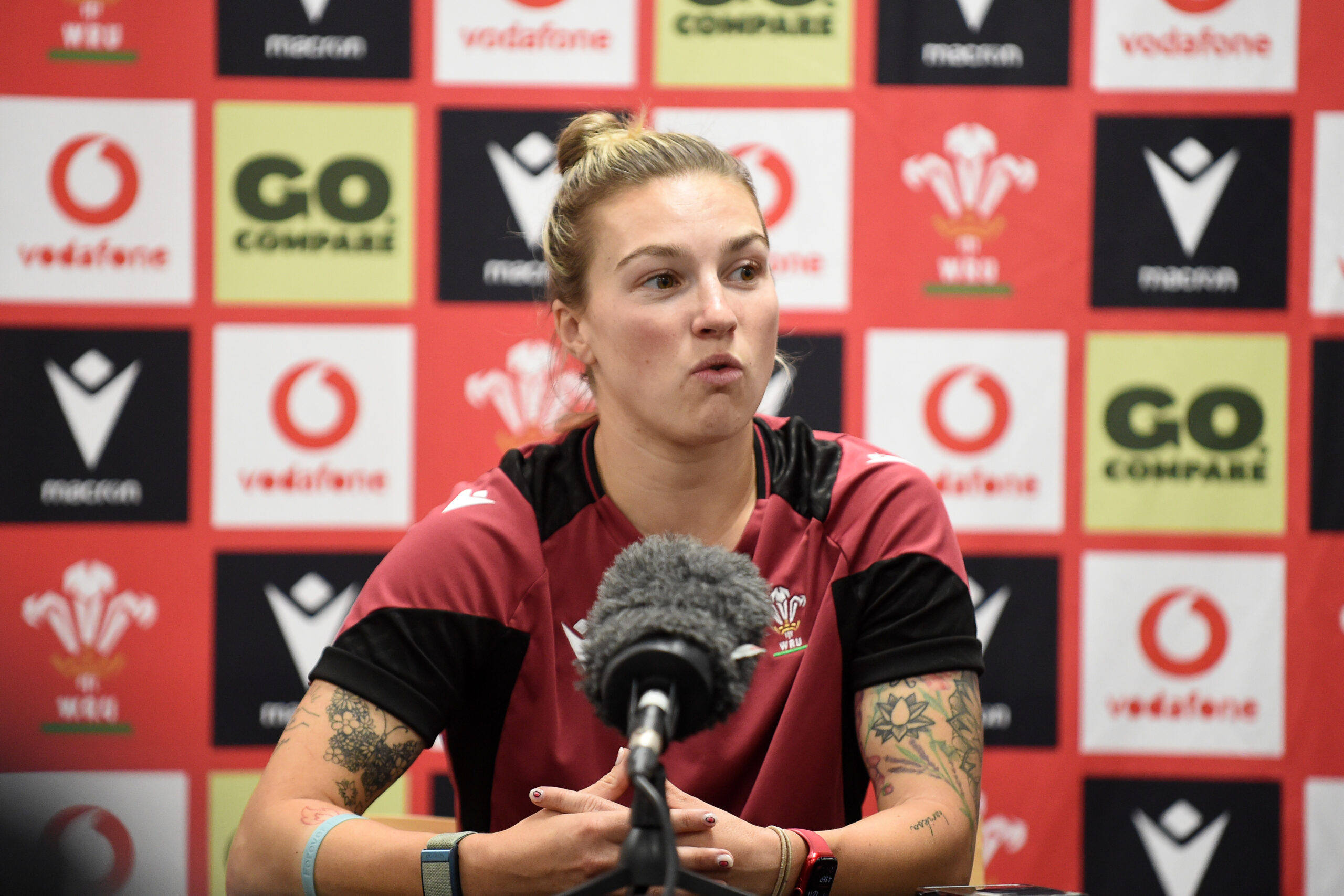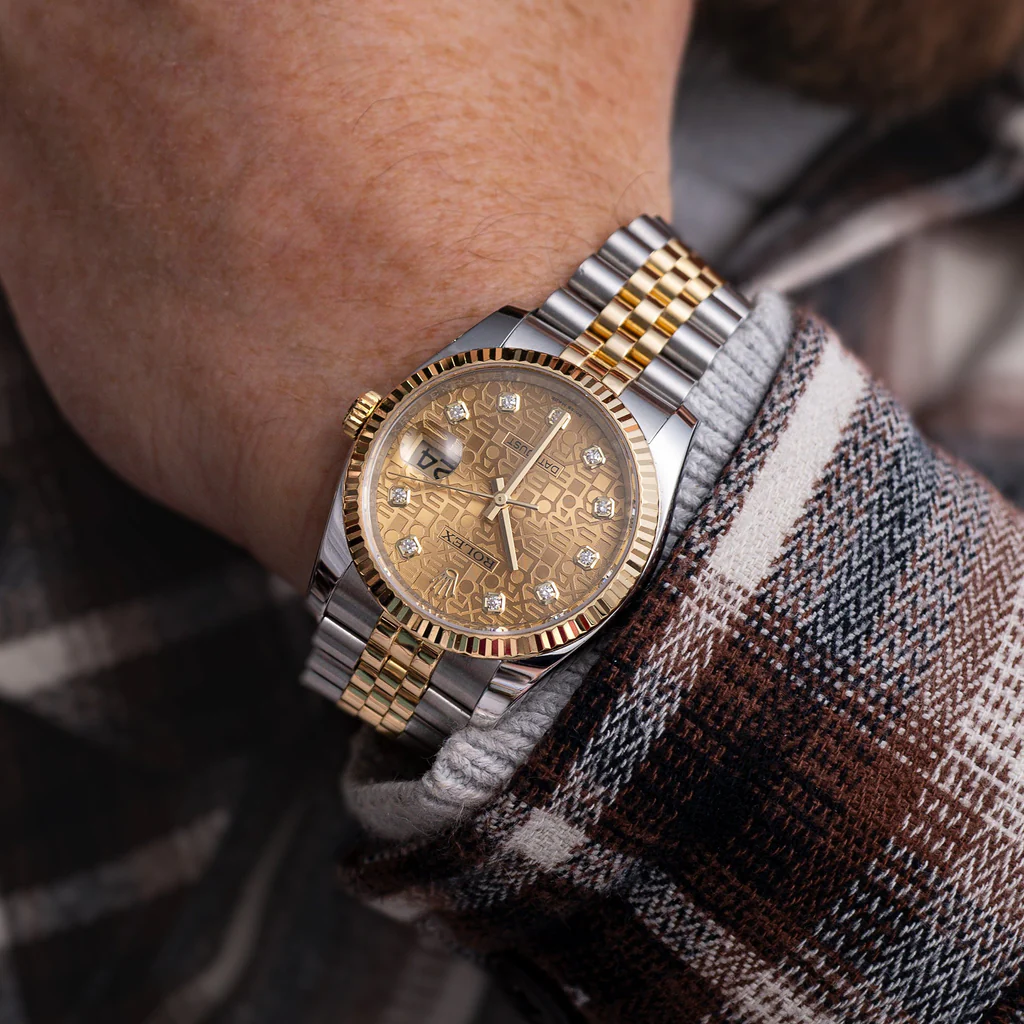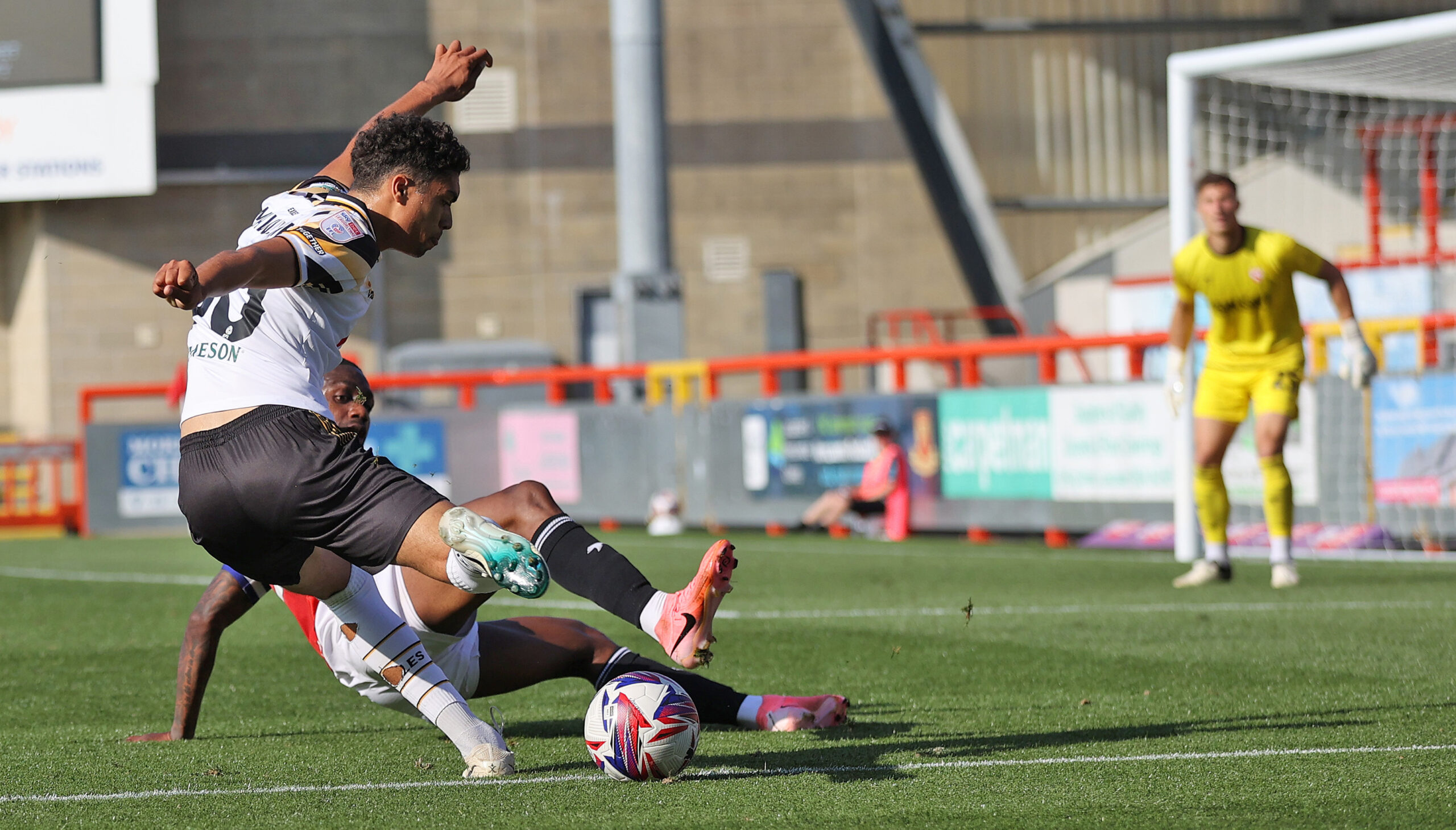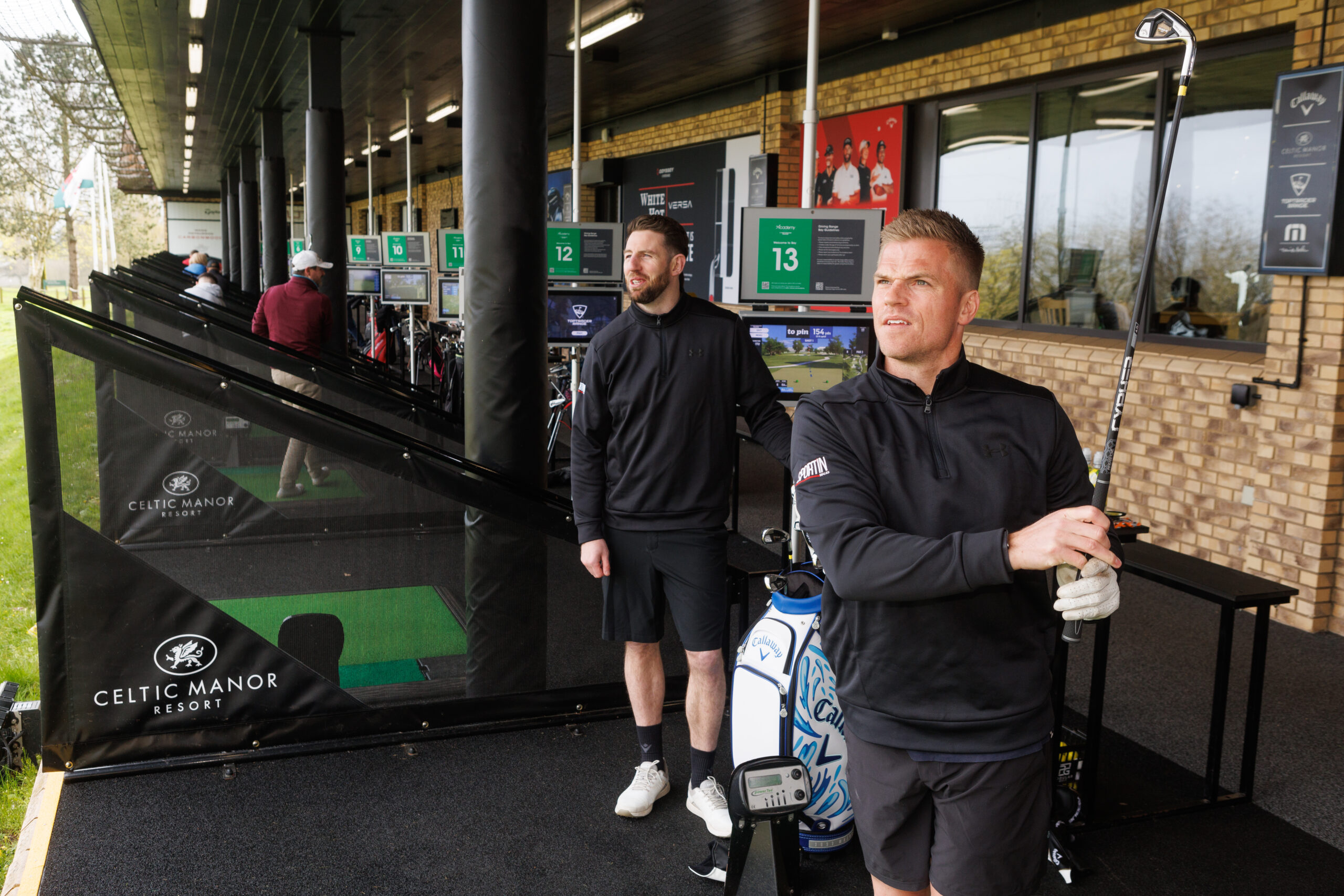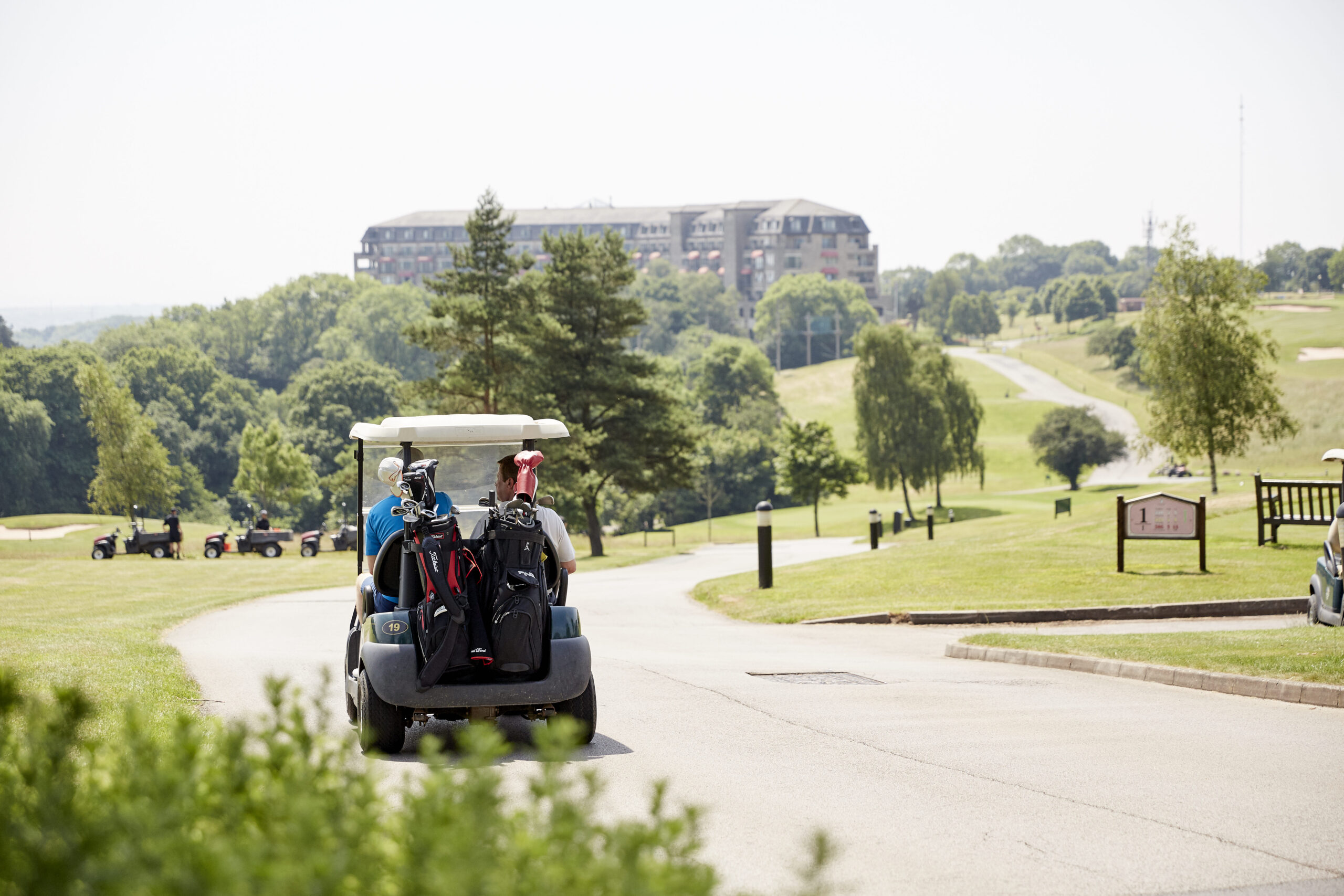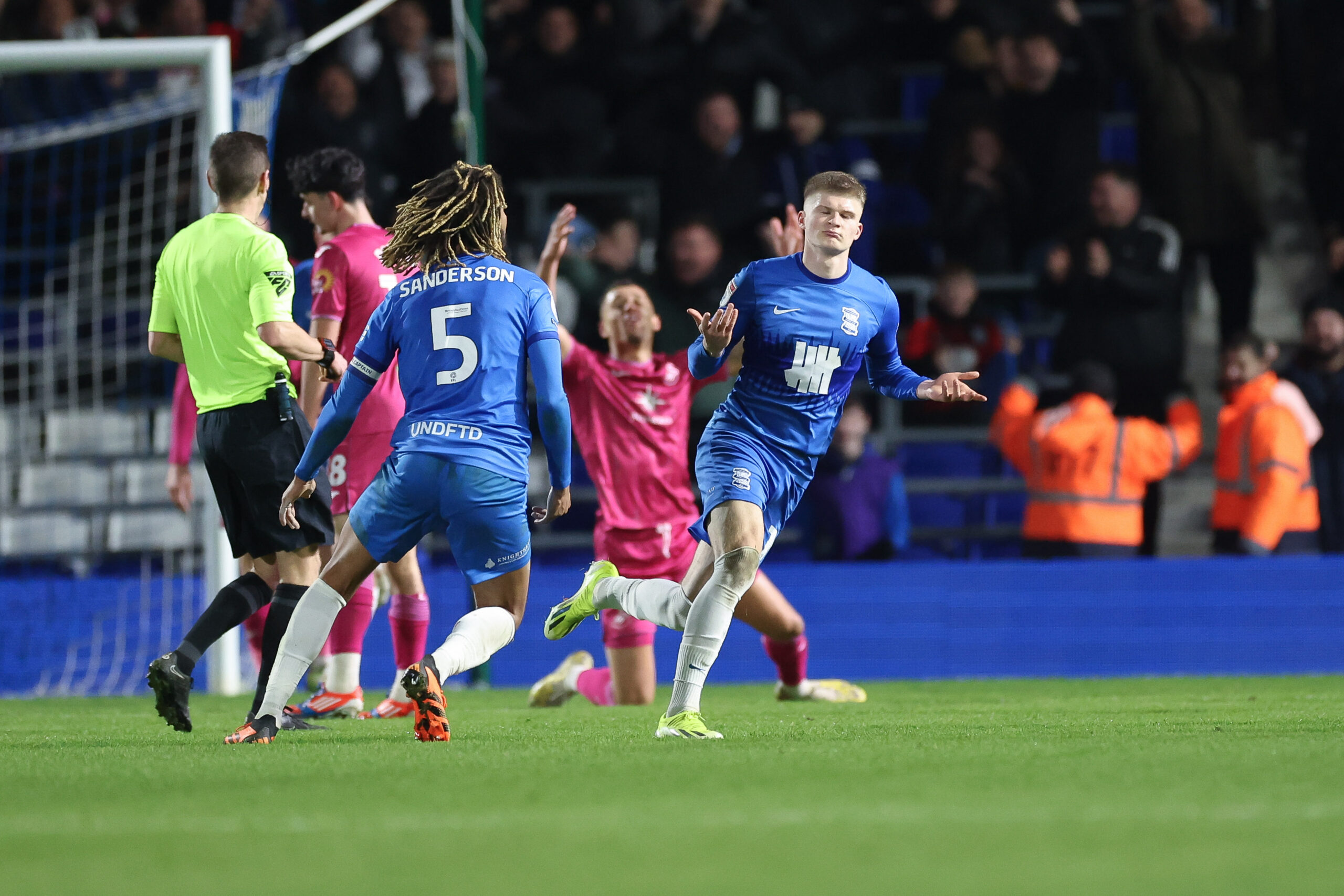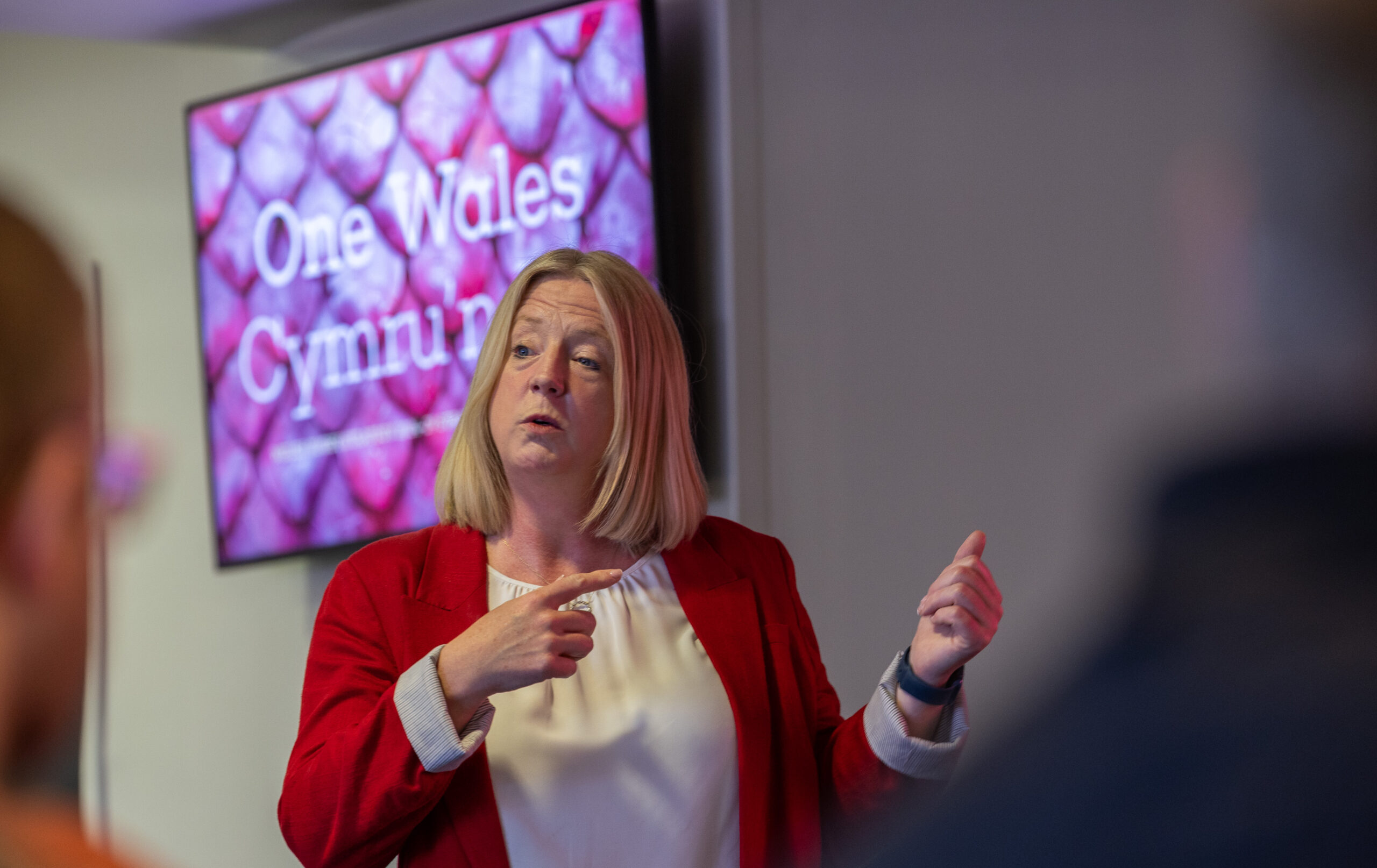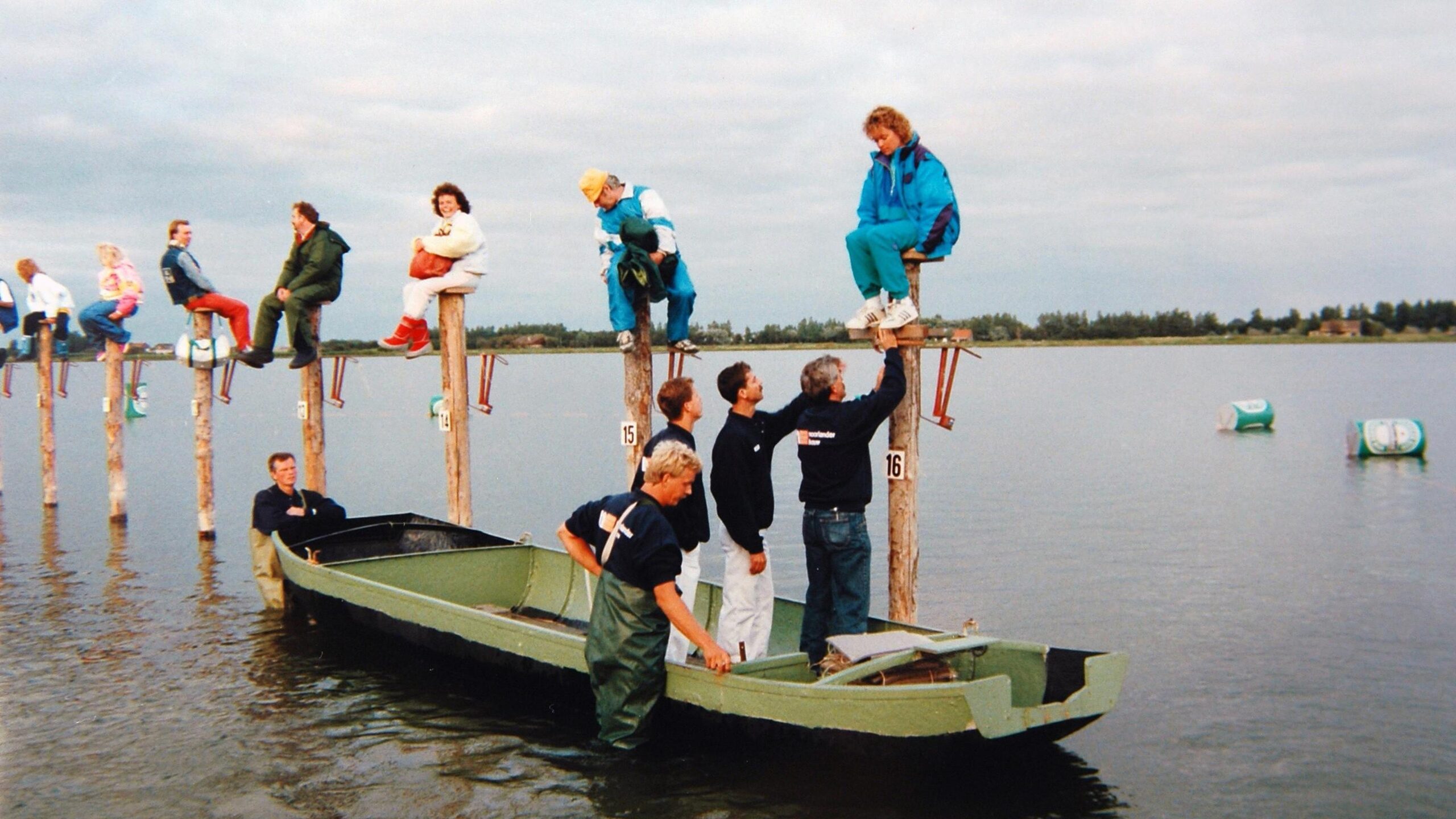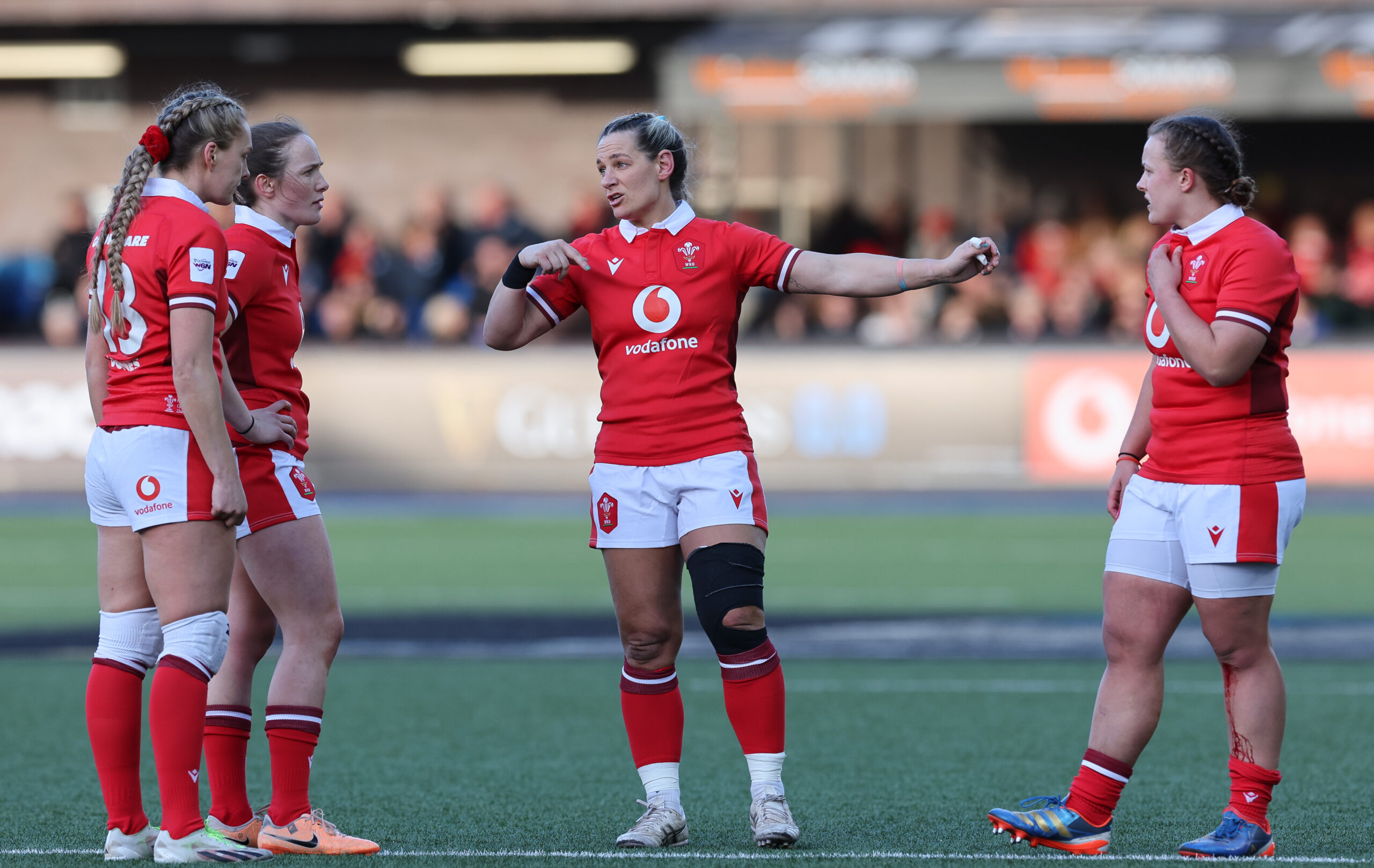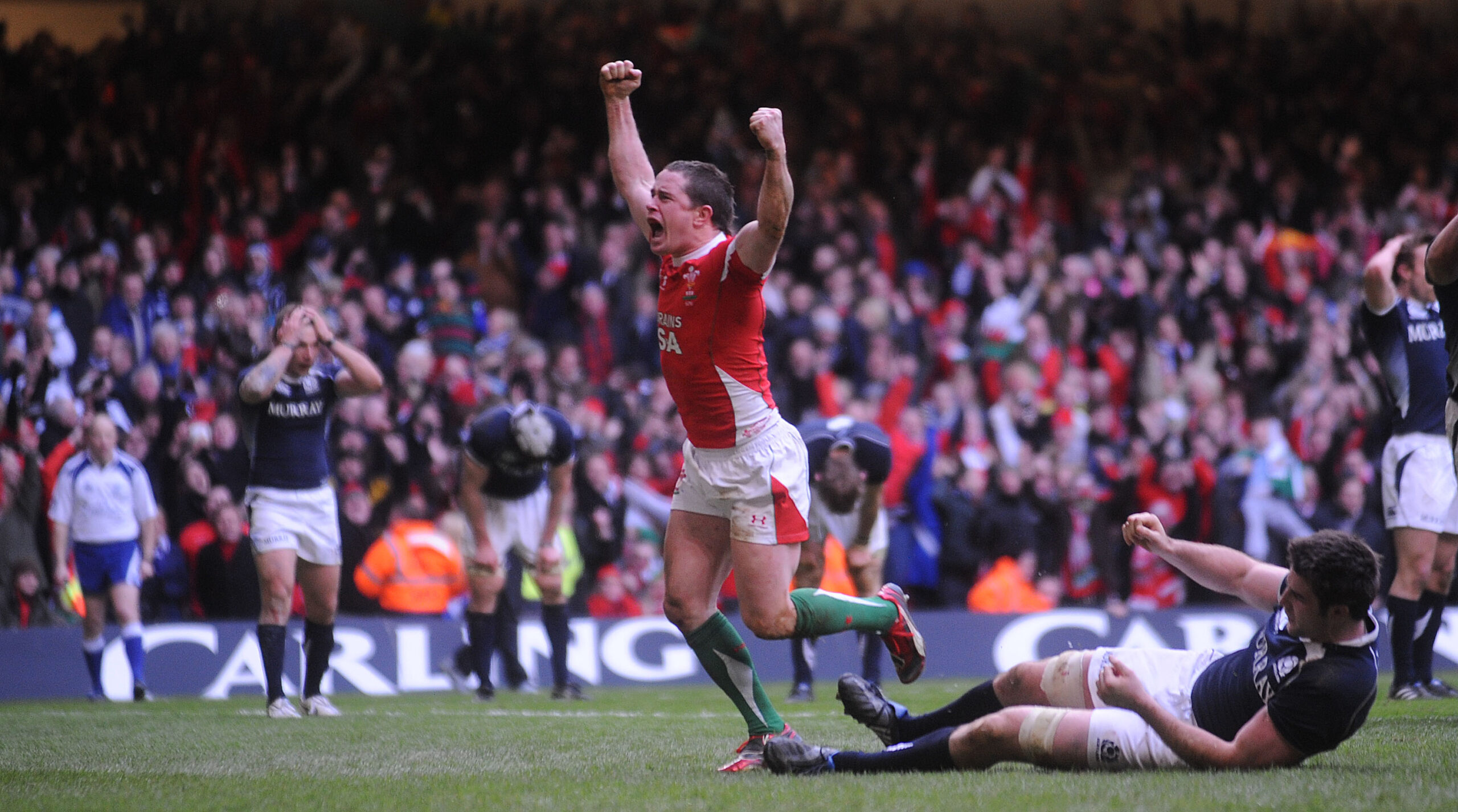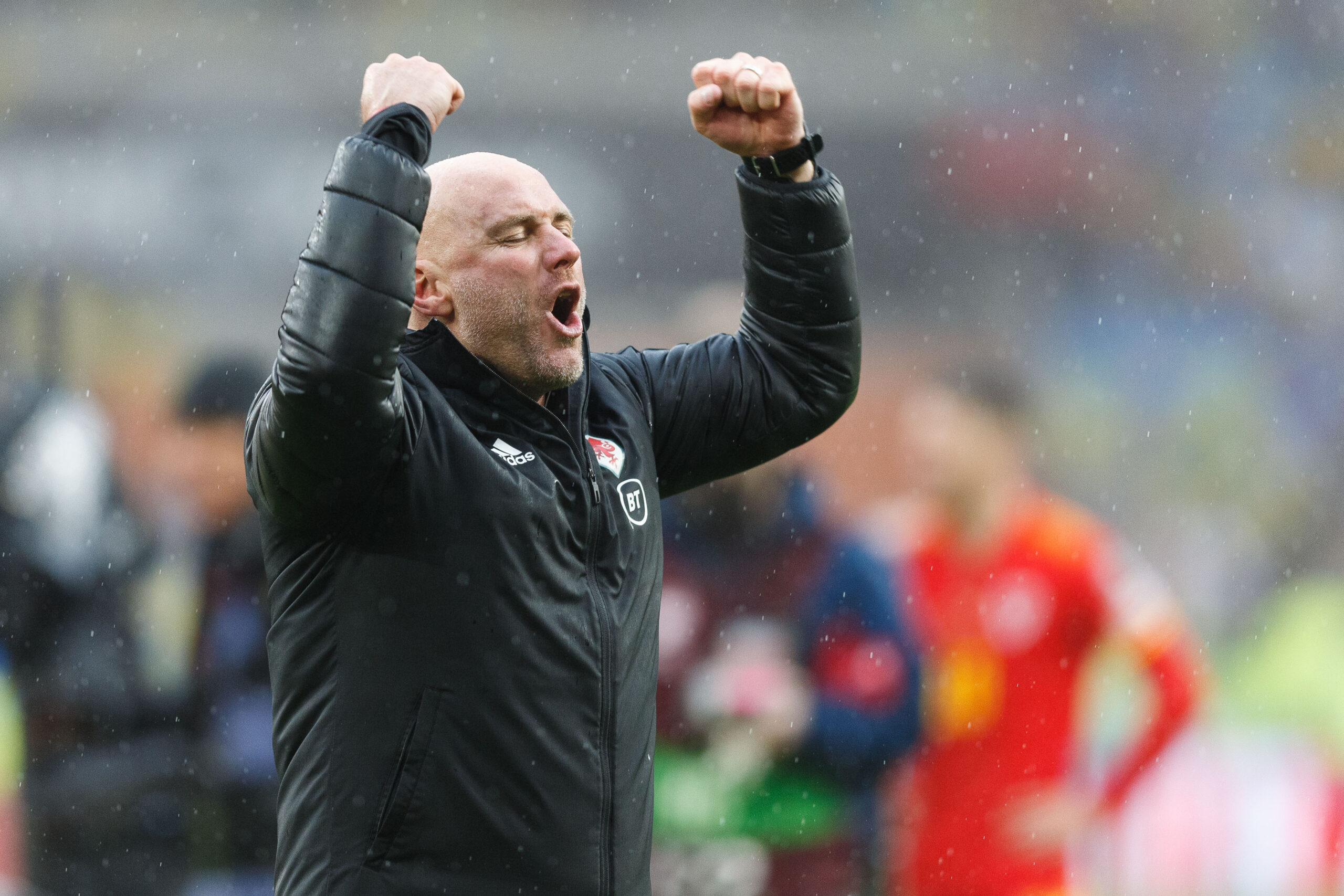Australia vs Wales: What To Expect From New-Look Wallabies
Rhodri Evans

Rhodri Evans
Wales travel to Australia aiming to end a 55-year wait for a victory on Australian soil and awaiting them is a very different team to the one that was comprehensively defeated 40-6 by Warren Gatland’s side in the pool stage of the 2023 Rugby World Cup.
That defeat, and subsequent loss at the hands of Fiji, meant that Eddie Jones’ reign ended almost as abruptly as is began. Nine games, two wins, seven losses, and many more bridges burnt has lead to a reset of sorts from Rugby Australia, who appointed former Ireland head coach Joe Schmidt in January 2024.
Australia have named 13 potential debutants in their 38-player squad for these matches against Wales, with inexperienced back rower Liam Wright set to be named as captain for the first test in Sydney on Saturday.
If any Wales fans were ruing their own side’s recent upheaval, then Wallabies supporters probably have them beat: despite Wales travelling with just eight players with more than 30 caps, Australia have only six in their group. Injuries to Angus Bell, Max Jorgensen, Rob Leota, and David Porecki, amongst others have severely weakened the options Schmidt has to pick from.
New Coach
Joe Schmidt has an excellent reputation in world rugby, having had an extraordinarily successful six-year reign as head coach of Ireland.
The New Zealander’s possession style laid the foundations for Andy Farrell’s subsequent period of Northern Hemisphere dominance by the Irish side, with Schmidt himself leaving the Emerald Isle with no shortage of silverware.
Arriving in 2013, Six Nations titles followed in 2014 and 2015, before a career year in 2018. A Grand Slam was followed up by a first win over the All Blacks on Irish soil. Schmidt was named World Rugby Coach of the Year for 2018.
After a disappointing 2019 World Cup campaign, Schmidt left his role and took up backroom roles at the Auckland Blues and then the All Blacks.
Schmidt is a world-renowned tactician and was most recently the New Zealand attack coach, credited as an influential part of the All Blacks’ turnaround in form, leading to their run to the 2023 Rugby World Cup final.
New Captain?
Schmidt, like Gatland, initially named his squad without a captain and, according to reports in Australia, will entrust Liam Wright with the leadership role for the first test.
Wright, 26, has just five international caps, all of them from the bench with the most recent coming in 2020. He will be the seventh Australia captain in just over a year.
The Queensland Reds back row has had an excellent Super Rugby season at blindside flanker and his selection represents a new start for him and the squad as a whole after the uncertainty of the Eddie Jones era.
Wright is co-captain at the Reds, and while he is not a physically imposing blindside, his work rate on both sides of the ball makes him a standout in the position, especially when considering Rob Leota’s absence.
New Faces
With 13 potential debutants in the squad, there are lots of new names for those not so clued into Australian domestic rugby to get to know.
The most recognisable name out of the uncapped group is Tom Lynagh, son of Michael and brother of Louis. Louis Lynagh made an excellent start to his international career earlier this year, scoring on his Italy debut. While Louis decided to represent his mother’s nation, Tom will likely follow in the footsteps of his father, Michael, who is a World Cup-winning Wallaby legend.
Lynagh is one of six uncapped backs in the squad, along with David Feliuai, Josh Flook, Dylan Pietsch, Hamish Stewart, and Darby Lancaster.
Lancaster is an electric runner coming straight out of the sevens game, while Pietsch could become the Wallabies’ 15th Indigenous player if he gets on during the series.
Seven new forwards are in the squad: hooker Josh Nasser; props Alex Hodgman and Isaac Aedo Kailea; locks Angus Blyth, Ryan Smith, and Jeremy Williams; and Brumbies back row Charlie Cale.
Williams is captain of the Western Force, while Hodgman is a former All Black who joined the Reds ahead of the 2024 season.
The most exciting of the newbies in the forwards appears to be Cale, who has scored five tries in ten games this season.
“He’s a super talented athlete. Obviously, a couple of tries down the wing where he was really fleet of foot. His speed to jump, his lineout defence has been a real strength as well,” Schmidt explained.
“He’s growing into the game. I think there’s been a couple of times where they’ve played really big, physical teams in Super Rugby and maybe that’s an arena where he’s still got some work to do.
“But we really like the way that he’s shaping up.”
Old Heads
With the collective Test tally for the Wallabies side is set to be 361 caps – which is actually more than the 343 caps of the team that met Georgia in the World Cup opener last year – the experience of James Slipper stands out.
The veteran prop’s 135 Test caps accounts for nearly 40% of that 361 and his experience will be necessary against a creaking Welsh pack.
Of the Wallabies team that was resoundingly defeated 40-6 by Wales in Lyon, only Slipper, flanker Fraser McReight, No.8 Rob Valetini, winger Andrew Kellaway and hooker Matt Faessler look likely to be selected in Schmidt’s first Test team.
The absence of Kurtley Beale, who injured his Achilles playing in a club match last week, will be a blow for the Wallabies, whose back three options look light on experience without the stylish fullback.
Key Battles
With three new centres in the squad, there will likely be a new partner for Len Ikitau on Saturday, with Wales in a similar position. Whether the Mason Grady at 12 experiment continues is to be seen, but Gatland does now have Nick Tompkins to select, most likely alongside Owen Watkin at 13, who has earnt a run in the side with some excellent form for Ospreys.
The theme of inexperience continues into the playmakers, with Noah Lolesio set to return as the Wallabies’ flyhalf. Lolesio and Sam Costelow represent the incumbent options for their respective sides and yet have 20 and 12 caps respectively. The other options on either side include Ben Donaldson, Tom Lynagh, Jacob Beetham and Ben Thomas, none of whom are both experienced campaigners, nor regular 10s.
Wales were dominant the last time these two faced each other in the forwards. The front five kept their Australian counterparts at bay, while the back row dominated the likes of Tom Hooper and Fraser McReight, both of whom are still in the squad.
Australia do have experience in their front row, with the aforementioned Slipper likely to pack down alongside the likes of Allan Alaalatoa and Taniela Tupou. With Wales touring without the likes of Henry Thomas, Tomas Francis, Ryan Elias, and Keiron Assiratti, the Wallabies will be looking to exploit the international inexperience in Wales’ front row.
Winning As A Habit
With both sides coming into this game on poor recent form, getting over the line for a win will mean a lot for Gatland, Schmidt, and each of their international projects.
Speaking on Tuesday’s Sportin Wales Podcast, Alex Cuthbert described winning as a ‘habit’ that teams needs to get into and stay in.
“[Wales] need a win,” Cuthbert said.
“Losing and winning is a habit. I remember back in 2012, we won the Grand Slam and then in the summer and autumn lost every game and lost the first game of the Six Nations against Ireland at home.
“We lost eight games on the bounce. This team has lost seven and are in a similar situation. We ended up going on a run after getting a win in France and going on to win the Championship.
“It can change so quickly, all it takes is one little scrappy win. International rugby is about winning and getting over the line.”
Gareth Anscombe: ‘Brand New Tŷ Hotel is Perfect For Golf Stay’
Rhodri Evans
Sportin Wales co-founder and international rugby player Gareth Anscombe has stayed in many hotels in his time.
Whether touring, rugby away days, golf breaks, or family holidays, Gareth knows what to look for in the perfect stay, and the brand new Tŷ Newport certainly fits the bill.
“We were there on the very first day of opening and everything was smooth and easy for Milica and me,” says Gareth.
“Checking in was simple and the staff were excellent.”
The Tŷ Newport, located just off Junction 24 of the M4, is the perfect location for guests, whether it is to make use of the fabulous golf courses at Celtic Manor, easy access to Cardiff and Bristol, or the International Convention Centre (ICC) just over the road.
For Gareth and his wife, Milica, golf was on the agenda for their weekend stay.
“Milica and I played The Roman Road at Celtic Manor,” he adds.
“It’s always great playing at Celtic Manor. It was probably still a little wet under foot but busy with golfers.
“There’s a nice atmosphere around the place and the courses are so easy to get to from the Tŷ.”
The Tŷ Newport offers a complimentary shuttle bus to Celtic Manor and includes a spacious bar and dining area for after-round debriefs.
“I think it’s perfect for a golf trip,” Gareth says.
“We enjoyed ourselves and the bar was excellent, only two minutes from the courses.”
There are plenty of golf break deals on offer at the Tŷ, with the most enticing the Ryder Cup Two Course.
For just £131, guests get a one-night stay and can play on the iconic Twenty Ten course, as well as either of the excellent Montgomerie or Roman Road courses.
With an ideal location, the Tŷ Newport has quickly become the destination hotel in Newport. With 146 bedrooms, they cater for all, offering King, twin, and family rooms.
Amenities include a 49-inch Samsung Interactive TV, WiFi, on-site parking, tea and coffee facilities, as well as a number of accessible rooms to accommodate all guests’ needs.
Dining at Tŷ Newport is a must-try experience, with CASA Kitchen & Bar serving a Mediterranean-inspired menu. Spanish paella, chicken Milanese, and Greek souvlaki are all on the menu for guests to enjoy.
Whether located inside, in the spacious dining area, or outside on the terrace, CASA Kitchen & Bar gives guests the chance to transport their taste buds overseas, all while soaking in the south Wales vistas.
Gareth, though, like many of us, knows exactly how to judge the quality of a hotel: beds and showers!
“I think if I’m judging a hotel, I’m asking ‘what are the beds like? And what are is the shower like?’” Gareth explains.
“At the Tŷ, the shower was fantastic, and we had a nice, comfy bed. The room was a good size, and the staff service was top notch.
“It is great value for money. The hotels you pay that money for are not close to the standard we experienced.
“We will definitely be coming back to the Tŷ.”
Book your next getaway at www.ty-hotels.com
Rodon Has Got His Move: Who Else Needs One?
Rhodri Evans
Joe Rodon has moved to Leeds from Spurs in a deal worth £10m.
The centre back re-joins the club where he was at loan for last season, having apparently turned down an opportunity to join Premier League clubs.
Rodon formed a brilliant centre back partnership with Wales teammate Ethan Ampadu at Elland Road last season and both will be hoping to play a part in getting Leeds promoted having lost in the play-off final to Southampton.
Rob Page pushed for a number of players to make moves in January in search of Premier League football, now Sportin Wales takes a look at the Wales regular who need to move as they look for first team football ahead of the new season.
Danny Ward
In truth this could have been any of the four goalkeepers selected in Rob Page’s last squad, however as the incumbent of Wales’ number one jersey, Ward is perhaps the most obvious option.
For his squad to face Finland and Poland, Page selected Ward, Wayne Hennessey, Adam Davies and Tom King.
Of those, only Davies made an appearance last season for his club’s first team, a solitary appearance for Sheffield Utd in the EFL cup.
With Ward down as third choice at Leicester it may be a good time to move, however, he may fancy his chances of fighting for his place under new manager Steve Cooper.
Elsewhere, Hennessey is now a free agent and will be looking for a new club after his contract at Nottingham Forest came to an end.
Chris Mepham
Another who is third choice at his club and first choice for Wales, Mepham finds himself behind Marcos Senesi and Illya Zabarnyi in the pecking order at Bournemouth.
The former Brentford man admitted in January that he was not happy settling for a squad role under Andoni Iraola but failed to find a move.
Mepham is 26-years-old now, approaching a half-century of caps for Wales, and another season of just six league starts will not help him make a good impression with the next national team manager.
Ben Davies
Wales’ resident vice-captain has fallen out of favour somewhat since the arrival of Ange Postecoglou at the Tottenham Hotspur Stadium, starting 12 times in the league thanks to numerous injuries to Cristian Romero and Micky van der Ven throughout the campaign.
Davies is 31 now and likely to be Wales’ next permanent captain. He needs to be first choice for his club and, since the sacking of Antonio Conte, has not be that at Tottenham.
The former Swansea left-back has transformed into an excellent on-ball centre-half in recent seasons and is still of Premier League quality. He may need to take a step down in order to become a regular again, with the likes of Crystal Palace, Brighton, and Wolves looking like attractive options for him.
Connor Roberts
After starring in Burnley’s 2022/23 promotion campaign, Roberts then struggled to find a regular place in the first team last season, eventually moving to Leeds United on loan in January.
The former Swansea man only started two games for the Yorkshire club and returns to Burnley looking for a move away.
Burnley’s managerial situation – Vincent Kompany has left for Bayern Munich, leaving Craig Bellamy in temporary charge – may mean that Roberts hangs tight until there is more clarity, with the potential for Bellamy’s role to be made permanent working in his favour.
Jordan James
James’ Birmingham City exit has been trailed ever since the Midlands club was relegated to League One at the end of the season. Despite his club’s travails, James had an excellent season, scoring eight times and establishing himself as part of Wales’ regular midfield two with Ethan Ampadu.
James, 19, is aerially strong, solid on the ball, and a goal threat from midfield. These qualities attracted the eyes of Italian sides Atalanta and Fiorentina in January and now Premier League sides are taking notice too.
West Ham, Leicester, and mostly recently Nottingham Forest have all been linked, but Atalanta and the prospect of Champions League football looks the most enticing.
David Brooks
Having missed almost all of the 2021/22 and 2022/23 seasons due to a cancer diagnosis, Brooks started last season looking to put a run of games together for Bournemouth. The former Sheffield United man found it difficult to break back into the team and subsequently went on loan to Championship side Southampton in January.
Brooks did find more regular football at St Mary’s, starting 11 times in the league and helping the Saints to promotion to the Premier League.
Whether Southampton are an option for a permanent move is unknown, but Brooks needs to find a home away from Bournemouth
Lewis Koumas
While most on this list are looking for a permanent move, the question for Koumas is where he will be likely going on loan for the upcoming season.
Having broken into the Liverpool first team squad in the New Year, Koumas may bide his time this summer with the arrival of new manager Arne Slot.
Koumas will likely be included in Liverpool’s first team preseason and summer tour so we may have to wait until later in the summer for confirmation of his future. The 18-year-old was linked to Championship clubs in January and will no doubt find some suitors if he is to go on loan away from Liverpool
Kieffer Moore
Another who had a January loan, Moore went to Championship high-fliers Ipswich on a temporary basis from Bournemouth. After an excellent initial run of form, Moore found it hard to retain a starting spot in Kieran McKenna’s line-up.
With Moore largely unsuited to Iraola’s style of football and firmly a back-up to Dominic Solanke, the Wales forward may be looking to return to Portman Road on a permanent deal ahead of the 2023/24 season.
Welsh Rugby Team Of The Season
Rhodri Evans
Following a season where success was few and far between for most of Wales’ regions there have been some shining individual and team performances.
Ospreys’ wins in South Africa against Lions in Europe and Stormers, Cardiff’s demolition job of Dragons on Boxing Day, Scarlets’ win at Cardiff and Dragons’ performances in the Challenge Cup against Pau and Oyonnax.
Individually, there have also been some brilliant performances, be it Cameron Winnett in the red of Wales and for Cardiff, Ospreys’ Nicky Smith winning repeated scrum penalties against double World Cup winning tighthead Frans Malherbe or Tomi Lewis coming off the bench against Edinburgh and breaking at will.
Now, with the dust having settled on the season, Sportin Wales take a look at our combined regions team of the season.
Fullback – Cameron Winnett Cardiff Rugby
Winnett’s rise this season has been astronomical. Having played for Cardiff RFC last season he shone early doors for his region, earning a maiden Wales call-up for the Six Nations.
Consistently solid under the high ball and a potent threat in attack he just shades Ospreys’ Max Nagy who has been brilliant in attack this season particularly before dislocating his ankle in December.
Scarlets’ Ioan Nicholas is another who deserves a mention having become a safe pair of hands at the back towards the end of the season, enjoying a spell of consistency in the 15 shirt.
Right Wing – Rio Dyer Dragons
The Dragons flyer has scored 7 tries for club and country this season including a brilliant late double against Oyannax in the Challenge Cup.
Has cemented his place as one of the first names on the teamsheet for Wales and deserves his place in this selection.
Scarlets’ Tomi Lewis has performed brilliantly in attack during the second half of the season and it was disappointing to see him limp off after a two-try performance against Dragons at Judgement Day.
Meanwhile, Luke Morgan has arguably had his best season in an Ospreys shirt scoring twice against Stormers during a consistent season.
Outside Centre – Owen Watkin Ospreys
There is a strong argument to be had for Mason Grady here, who in recent weeks showcased his defensive qualities in the 13 channel to go along with his clear physical attributes in attack.
However, we have opted for Watkin who has been Mr. Consistent defensively for Ospreys this season whether at 12 or 13.
Johnny Williams has been called upon to fill that berth by Scarlets this season and has performed well when arguably out of position whilst Dragons will be hoping Joe Westwood can continue his impressive start in a Dragons jersey into next season.
Inside Centre – Ben Thomas Cardiff Rugby
This season Thomas has benefitted from being number one choice for Cardiff at 12, creating an effective partnership with Tinus de Beer at 10.
Touted as a possible option for Wales at 10 by Warren Gatland he also impressed against Sharks in that position winning player of the match.
Eddie James looks like a good prospect for the future at Scarlets, with great hands along with his physical attributes whilst Keiran Williams has provided much needed go-forward in midfield at Ospreys.
Left Wing – Keelan Giles Ospreys
2023/24 has seen Giles return to his very best, scoring nine tries, many of which were opportunistic efforts whilst he also has the footwork to beat a man in a phonebooth.
Another position where Grady could possibly fill following his early season form but Giles at 26 is showcasing the form which resulted in a Wales call up only to have to pull out with injury.
Outside Half – Jack Walsh Ospreys
As always in Welsh rugby, this is a difficult selection to make. Ospreys have consistently rotated all three of their fly-halves, Scarlets have switched between Sam Costelow and Ioan Lloyd while Cardiff have been consistent in selecting Tinus de Beer.
However, Walsh has been a constant threat, whether he’s lined up at fullback or his preferred 10 shirt and we have opted for him and the threat he possesses.
Costelow has found it difficult to gain consistency with the trials of the World Cup, then injury and then a couple of HIA’s but showed his class in Scarlets’ win against Zebre and on Judgement Day against Dragons.
Scrum Half – Reuben Morgan-Williams Ospreys
First of all, an admission. Playing nine behind a pack on the front foot is always easier than not and that may have played its part here.
However, Morgan-Williams has taken his chance this season as Ospreys’ first choice and has been a constant running threat from the base, whilst his box kicking has also improved.
Tomos Williams’ early season form would have made him a shoe-in for the award before injury while Ellis Bevan has impressed in his absence earning a debut against the ‘Boks. Scarlets pair Kieran Hardy and Gareth Davies have struggled for consistency throughout the majority of the season but both finished strongly.
Loosehead Prop – Nicky Smith Ospreys
This has been one of the most hotly contested positions this season with Cardiff pairing Rhys Carré and Corey Domachowski going head-to-head with Smith and Gareth Thomas at Ospreys.
Whilst Carré’s performances have garnered headlines this season with eight tries, Smith has been a destructive presence up front, playing a key part in Ospreys’ win at Stormers, getting the better of double World Cup winning South African tighthead Frans Malherbe.
However, he remains out of favour in a Wales shirt. Left out in favour of Scarlets man Kemsley Mathias.
Hooker – Elliott Dee Dragons
Before this season in Welsh colours Dee has been somewhat of the bridesmaid and not the bride when it came to starts for the national side but things changed this season with his accurate throwing and work rate acknowledged during the Six Nations.
For his region he has also been very consistent, along with Cardiff’s Liam Belcher who is unlucky to miss out.
Ryan Elias has had some huge performances, particularly in the home loss to Lions, while both Sam Parry and Lewis Lloyd have performed well in Dewi Lake’s absence.
Tighthead Prop – Tom Botha Ospreys
Ospreys’ scrum has been a weapon for them this season, both in getting them out of trouble and as a platform for their attack and Botha is the cornerstone of this.
Fellow Osprey Rhys Henry has played his part in the scrum season with no shortage of flair as well whilst Cardiff’s Kieron Assiratti has fought off all-comers in securing his starting berth at Cardiff Arms Park.
Second Row – Alex Craig Scarlets
Craig’s player of the match display against Dragons on Judgement Day epitomised everything the Scot has given to his side this season.
Hard grunt, solid carrying along with a selection of lineout steals won him Scarlets’ player of the season award and, more importantly, a place on this list.
James Fender’s early season form would have surely earnt him a place but for injury while James Ratti deserves a mention particularly for his form in the second half of the season.
Second Row – Teddy Williams Cardiff
Amidst all the talk of Winnett, Lloyd and Martin, Williams has been another Cardiff youngster who has shone this season.
Against Bath in the Champions Cup he was one of the best players on the park and didn’t look out of place against Toulouse either and it is a huge shame he won’t be able to add to his two Wales caps this summer due to injury.
Adam Beard has been consistent throughout this season and deserves a mention for his role in Ospreys’ forward pack, whilst Scarlets’ Sam Lousi has been showing his normal blend of flair offloads and eye-catching carries.
Blindside Flanker – Alex Mann Cardiff
The former Wales U20s captain is another of Cardiff’s young revelations this season resulting in a first call up to the national side in the Six Nations.
His tough tackling and brilliant work rate have been a constant for Cardiff, whilst he is also a decent lineout option. Mann will face more competition next season at Cardiff with James Botham back from injury and Ben Donnell who has been impressive since signing.
Elsewhere, Teddy Leatherbarrow can be proud of his first season in a Scarlets shirt and will be missed in West Wales while Rhys Davies is another who’s promising season was cut short by injury.
Openside Flanker – Harri Deaves Ospreys
Deaves has featured at both six and seven this season, moving to blindside following the return of captain Justin Tipuric from injury but we have opted to put Deaves in the seven jersey ahead of his teammate.
The yellow scrum cap from Pontyclun has been superb this season, particularly against Sale in the Challenge Cup with turnovers galore.
Elsewhere, Dan Davis has been impressive towards the end of the season for Scarlets while Ellis Jenkins produced some eye-catching displays in his final season of professional rugby.
Number Eight – Morgan Morris Ospreys
No shocks here. Morris has been superb this season leading to the voices calling for his selection for Wales to become a clamour.
Others have performed well, in particular Aaron Wainwright for Dragons and Wales, while Mackenzie Martin is an exciting prospect.
Down West and Vaea Fifita has sparkled at times for Scarlets, but Morris takes it for his destructive ball carrying and key turnovers.
Five Year Plan: Abi Tierney's Strategy For Welsh Rugby Analysed
Rhodri Evans

Rhodri Evans
“A really big day”
That was the assessment of Abi Tierney, CEO of the Wales Rugby Union (WRU), who has set out the union’s five year plan to ‘save’ Welsh rugby.
After a difficult year on and off the pitch, the WRU’s new CEO has spent the majority of her six months in post devising a strategy for rebuilding Welsh rugby.
The aims are not surprising: improvement in the men’s and women’s teams, as well as the regions, increase participation at grassroots level, and build a culture of positivity around the sport.
Bleak financial reality
The fourth aim, though, appears to be the toughest: financial sustainability at all levels.
The WRU’s cost projections reveal that there will be a £35m funding gap for the regions over the five year period, casting the future of the four-region structure into further doubt.
On top of this, the union is operating considerably beyond its means, posting an annual deficit of £15m, all while attempting to pay off £20m of debt.
WRU Chair, Richard Collier-Keywood, who also presented on Wednesday, revealed that the union has been funding that annual deficit by selling assets to CVC, a private equity firm, meaning that their future revenue has decreased because they have sold ‘some’ media rights.
Collier-Keywood and Tierney both attempted to paint the WRU’s situation in a positive light, asking sceptics to look to the future, rather than back at past failings.
“We have an amazing set of assets in the WRU,” Collier-Keywood said.
“We want to make sure we maximise the use of our assets moving forward so we deliver more assets into Welsh rugby. That’s really what we are focused on to work out reasonably how much that could be going forward.
“I’d say it’s absolutely stable and we are doing our best to support both professional and community rugby in Wales while also making the whole eco-system stable.”
Regretting CVC Deal
One area the WRU does have regrets over, is the CVC deal. The agreement sold 28% of the union’s United Rugby Championship right and ‘a significant’ sum’ of their Six Nations share to the private equity firm, putting a cap on their earnings in the future.
Agreed in March 2021, Collier-Keywood admitted that that if the WRU were offered the CVC deal now they would turn it down.
“If you asked us whether they offered us the same deal now would we do it? The answer is we wouldn’t do it because all it does is brings forward cash but it sells out the sort of future asset you have in value,” he said.
“We had a series of payments, some of which had been paid for us already by CVC and some of which are still due to be paid for us by CVC over the next two accounting periods.
“The money we’ve broadly received so far has gone towards partly funding the funding gap we’ve had in the past and a lot of that, particularly in the 2019/20 years, that covered Covid costs.
“The original idea was to invest that into new assets which would generate income for the URC. In fact it went towards helping the WRU and the regional clubs survive Covid.
“Moving forward we have a funding gap because you can’t just cut off expenditure. CVC income that’s coming in on July 1st 2024 will be used to manage some of that funding gap and then we have one more payment due.”
What comes next?
Speaking on the Sportin Wales podcast, Tierney explained that what the next steps in the rebuild are, and how they will impact the game.
“I think there’s a difference between having a high level strategic plan and then the operational plans and decisions you have to take to implement that,” Tierney said.
“You can’t share it all in a 20 minute press conference. We’ve done a lot of detail with the teams against each of the pillars about setting KPIs that we’re going to measure success against, and then the actions that we understand are going to be best done to deliver those KPIs.
“We’ll be monitoring those regularly, and if they don’t work, we’ll be adjusting them, There’s lots of operational detail there, but there is still more work to be done.
“If I take the example of a national team performing consistently and ranked consistently in the top five, then we know we need to do better, and we need to change things around in our academies, pathways, and development centres.”
Tierney was also keen to stress that no ‘pillar’ of the WRU will take precedent over another.
“Everything we set out today, we will be pushing on all front at the same time,” she explained.
“We have directors overseeing each individual element, so they will be working with their teams to push on those fronts.
“The heart of the strategy is doing 100 things better, as opposed to one or two things.”
Getting out of the financial hole
Many fans and active participants in Welsh rugby will be wondering a similar thing following this announcement: how is the WRU going to afford this?
Tierney explained that the WRU does have some stability to work from.
“There’s two answers to the affordability question,” Tierney said.
“Firstly, a lot of things that we need to do is about doing things differently or better, actually not costing more money. So that’s number one.
“And then the second bit of it is actually using what we’ve already got now. We have a really sound financial business underpinning it all.
“The WRU turns over £100 million. Up until now, we’ve had CVC money, which has been coming in that has masked the fact that we’ve been over-spending. We’ve already identified ways we’re going to bring that back in once we’ve done that, even our leverage against the debt is reasonable.
“We’ve actually got a really sound business. Then you start to have a professional team that’s performing, and you have regional teams that are performing. You start to get more money from sponsors. You start to be able to sell out the stadium regularly. You get people going back to the regional team. So you end up in that virtuous circle.”
Buy-in from the regions and players
“The regions have been constructive and collaborative around the table with us,” Tierney said.
“The right level of challenging. I think it’s been a real reset in the relationship.
“I’m not saying that there haven’t been bumps in the road, and there won’t be bumps in the road if and when we need to make difficult decisions, but I certainly think we are on our journey to kind of rebuild and trust for it to feel much more collaborative.”
The WRU’s CEO also said how she “couldn’t get the players out of the room”, such was the engagement from them about the new plan.
“It was brilliant. they had so many questions,” said Tierney.
“They care passionately about the regions because most of them work in the regions. They want to know when they’re going to get certainty on that, which is really understandable. There were questions on the regions, there were questions on the 25 rule.
“Questions on future contracts. There were questions about investment in players in the regions, but also the facilities. It’s about the support teams that are around. It’s about the coaches.
“It was a really, really engaged, honest conversation. I hope they valued it, and we’ve just got to keep those conversations going. I certainly and found it really helpful.”
Nothing off the table – especially not cutting a region
It has been estimated that an operating budget of £6-6.5 million is necessary for the regions to be on-par financially with the Irish and Scottish sides competing at the top of the URC. With £18m set to be split between four this coming season, there is a valid argument that three lots of £6m should be going to three regions, with one missing out.
Perhaps the most notable part of her podcast appearance, was Tierney’s refusal to be drawn into whether a region will eventually have to be cut, at least in funding terms.
When asked about how the regions bridge the funding gap between themselves and their direct competitors, Tierney explained that ‘patience’ is required.
“We have agreed the budget for next year, so that’s where that that patience comes in,” she explained.
“Next year is going to be tough because we haven’t got that ability to bridge that gap immediately. But one of the reasons why I think it’s so important we make a decision in September as that is when contracts are being signed for the following years.
“If there was a drastic change in regions, you’re obliged to give a region a notice period. There’s not going to be anything that happens overnight, and that’s really important for people’s jobs, people’s security as well. There will be a transition period.”
Cuthbert Strategy Reaction: 'Next Two Years Are Going To Be Tough'
Rhodri Evans
“I think she has come into the job and realised how much of a mess it is.”
That was the instant reaction from Sportin Wales co-founder and international rugby player Alex Cuthbert, after speaking to Wales Rugby Union (WRU) CEO Abi Tierney following her presentation on the union’s five year plan for Welsh rugby.
While the structure of the plan is yet to be revealed, the union have set out five goals to measure the success for their strategy:
-
Both men’s and women’s national teams consistently ranked in world top five.
-
Club teams challenging in the play-offs of URC and Celtic Challenge.
-
Retain and grow the number of active participants.
-
Financial sustainability at all levels.
-
Increase positivity of the game among the Welsh public.
Speaking on the Sportin Wales podcast, Cuthbert expressed his trepidation that the first couple of years of the five year plan will be difficult.
“I think the first couple of years are gonna be tough,” Cuthbert said on the podcast.
“Next year is gonna be really tough. And then, obviously, then I think they’re gonna have to make a decision where the four reasons is the way forward as a business.
“I really think that’s gonna be one of the big talking points come September, whether they can bridge that gap. Because obviously, the only way they can bridge that gap is probably taken away from the regions.”
The ‘gap’ Cuthbert is referring to is the £35million spread over the next five years of funding gap to the regions that is the biggest challenge facing the WRU. While the union maintains its aspiration to continue with four regional teams, they remain just that: aspirations.
Ahead of next season, the four teams will receive a salary budget of £4.5m, a reduction from the £5.2m from the 2023/24 season, which was already a weak financial position to work from.
The extent of the WRU’s financial woes were clear in Tierney’s presentation. As well as the £35m funding gap, the union is £20m in debt and there is £15m of annual deficit.
Cuthbert. though, is confident that the route back to stability is through the national teams.
“The best asset the business has is the senior men’s and women’s teams,” he added.
“They’re the ones that bring in the money. The presentation revealed that £10m is made from filling the Principality for Six Nations and autumn international games. In my eyes, that has to be the main focus.
“There’s going to be some tough decisions come October time, in terms of trying to bridge that gap and whether three or four regions is the best way forward. I’m glad I’m not at the top making these decisions because it’s going to be tough.”
While the WRU have announced the place they want Welsh rugby to get to by 2029, the ‘how’ of the situation is still to be fully determined.
It has been estimated that an operating budget of £6-6.5 million is necessary for the regions to be competitive with the Irish and Scottish sides in the URC. With £18m set to be split between four this coming season, there is a valid argument that three lots of £6m should be going to three regions, with one missing out.
“How are they going to do this?” Cuthbert asked.
“That’s the question everyone wants to know now. How are they going to somehow put more money within the regions when they have these financial holes.
“Tierney spoke about filling a gap of £35m in five years and even with some of the debt being offset, that is a big ask. The more people that are supportive of this plan, the better. We all need to be on the same page.
“I think the biggest issue in the past 30 years is that the clubs and regions are not on the same page as the WRU. The union hasn’t trusted the regions and visa-versa.
“If you look at the other countries, particularly Ireland, they seem to be all on the same page.”
The outcome of the plan has been forecast by those hoping to shape the future. How the WRU goes about setting out their new future remains to be seen with further explanation on this expected in September.
Paalzitten! The Bizarre Dutch Sport Of Pole Sitting
Rhodri Evans
EURO 2024 is well and truly underway and while Wales are not in it there have been some fantastic opening matches to watch.
Here at Sportin Wales HQ, we ran a poll to see who the Welsh public will be supporting in the Euros in the absence of Wales, and most of our readers chose the Netherlands.
The Dutch side is ranked 17th in the world and have some fantastic players such as Memphis Depay, Virgil Van Dijk and Nathan Ake looking to lead their nation (and us!) to glory
They’ve had a quietly strong showing in the tournament so far, beating Poland 2-1 in their opener, drawing with pre-tournament favourites France 0-0, and dominating their final group stage game, only to lose 3-2 to Austria.
The Oranje face Romania in the Round of 16 and find themselves on the ‘kind’ half of the draw with England and Italy. No prizes for guessing who Sportin Wales will be supporting if the Netherlands meet England in a semi-final!
As the public chose The Netherlands, we have taken a deep dive into some of the unusual sports that most of our reader will not have ever heard of.
While football is the most popular sport in Holland, a niche sport that is unique to the Dutch is ‘Paalzitten’ which, in English, is pole sitting.
It is an unusual tradition in the Netherlands which sees competitors sit on wooden poles that are built into shallow water.
How do you play it?
It’s simple! Competitors must sit on the pole for as long as possible to outlast their opponents, without leaving their positions.
The last person who is still on their pole is declared the winner. Players can be sat for hours until they are either bored or surrender because of numbness.
How did it come about?
The roots of paalzitten can be traced back to Dutch maritime history. Sailors and fishermen would sit on poles in the water while waiting for their ships to depart. Over time, this practice evolved into a recreational and competitive event.
Flagpole sitting became a fad in the United States of America in the mid-to-late 1920s after Alvin “Shipwreck” Kelly, who sat on a flagpole for 13 hours and 13 minutes in 1924. It is not known whether Kelly did it on a dare or as a publicity stunt, but the achievement certainly attracted attention.
Over the preceding years, the record was extended into days, reaching 21 days before Kelly sensationally re-took the title in 1929, sitting on a flagpole for a scarcely believable 49 days.
Pole sitting largely ended in America with the onset of the Great Depression, but was still going strong across the Atlantic in the Netherlands. It is not known who brought paalzitten to the flatlands of Northwest Europe, but by 1970, there was an official Paalzitten World Championships.
What are the Rules?
The poles used in ‘Pole Sitting’ must be placed at least a few metres from each other, this stops others who become numb falling and potentially injuring others.
All poles have a seat and backrest for comfort and even has a shelf. Each person taking part are allowed toilet breaks every few hours. It is not exactly an extreme sport!
The longest a competitor has lasted in the competition was 92 hours on the wooden pole in 1972.
Are there any competitions?
Yes, The Paalzitten Championship takes place during local festivals, fairs or gatherings where the community gathers to watch and support the participants.
The competition is a test of stamina and balance with participants having to find a way to deal with discomfort and boredom.
Fundamentally, paalzitten embodies the Dutch spirit of togetherness. Communities gather to cheer on the participants, creating an atmosphere of excitement and support. The event fosters a sense of local pride and unity, as people come together to celebrate their heritage and create lasting memories.
Lake Set For 50th Cap In Wales vs Spain WXV Play-Off
Rhodri Evans
Wales centre Kerin Lake will win her 50th international cap when Wales play Spain in the WXV play-off match at Cardiff Arms Park on Saturday.
Lake partners captain Hannah Jones in a familiar back line, that also includes regular half-backs Keira Bevan and Lleucu George.
Following a disastrous Six Nations campaign, with the final day victory over Italy not preventing them from taking home the wooden spoon, Wales face this play-off against Spain with dual purpose.
Victory not only places Wales in the WXV2 competition, but also ensures qualification to next year’s World Cup, held in England. Head coach Ioan Cunningham had previously stated that his team’s objective is to reach the semi-finals of that tournament, but their form of late has raised question marks about that target.
It is a sign of Cunningham’s position that he has refused to experiment with his 23 for this game, knowing that defeat will heap even more pressure on his shoulders ahead of the WXV in the autumn.
Carys Cox and Jenny Hesketh are joined in the back three by Lisa Neumann who pips Courtney Keight to a starting spot. Keight impressed in last week’s Premiership Women’s Rugby final, scoring on her 50th appearance for Bristol Bears, as they eventually fell to defeat against Gloucester-Hartpury.
Bethan Lewis, an integral part of Gloucester’s back-to-back title success and the top tackler in the 2023/24 edition, returns to the back row after a spell on the bench during the 2024 Six Nations. She is joined by Wales stalwarts Alisha Butchers and vice-captain Alex Callender.
Saracens’ Georgia Evans returns to the second row after a period at number eight, and partners Abbie Fleming, with the familiar front row of Gwenllian Pyrs, Carys Phillips, and Sisilia Tuipulotu packing down in front.
Keight is joined on the bench by half-backs Robyn Wilkins and Sian Jones, while Molly Reardon, Abbey Constable, Donna Rose, Kate Williams, and 2024 breakout star Gwennan Hopkins make up the replacements for the forwards.
Speaking ahead of the important match, Ioan Cunningham stressed the importance of getting the job done and qualifying for WXV2.
“We know what we have to do – victory means World Cup qualification for England 2025 and qualification for WXV2 in South Africa in September,” he said.
“The focus all of this week has been on what we need to do and how we are going to play, and making sure we have the detail in our game right. We need to play with tempo and know Spain will view this vital game as a way to make a statement.
“We need to build on the win in our final game of the Guinness Six Nations against Italy and have selected the bulk of the team who delivered on that day. We know Spain have prepared with two warm-up games against Canada A and will pose a real challenge.”
Wales: Jenny Hesketh; Lisa Neumann, Hannah Jones (capt), Kerin Lake, Carys Cox; Lleucu George, Keira Bevan; Gwenllian Pyrs, Carys Phillips, Sisilia Tuipulotu, Abbie Fleming, Georgia Evans, Alisha Butchers, Alex Callender, Bethan Lewis
Replacements: Molly Reardon, Abbey Constable, Donna Rose, Kate Williams, Gwennan Hopkins, Sian Jones, Robyn Wilkins, Courtney Keight.
From Springboks To Swifties, 25 Years Of The Principality Stadium
Rhodri Evans
Today marks 25 years since the first Wales international at the Principality, formally Millennium, Stadium.
That day was a game fitting of the historic occasion, as Wales celebrated a first win against South Africa just a year after a 96-13 defeat in Pretoria against the same opposition.
At a half-built Millennium, preparing to play host to the 1999 World Cup, Wales won 29-19 against the Boks with tries from Mark Taylor and Gareth Thomas along with 19 points from the boot of Neil Jenkins.
Since that day, the stadium, it’s (at times) threadbare turf and retractable roof has seen some of the world’s biggest stars.
The 26th of June 1999 was the first of many special days at CF10. On the 25th anniversary of its opening fixture Sportin Wales take a look at some of its most memorable games:
19th March 2005 – Wales 32-20 Ireland
Where else to start? A first Grand Slam since 1978, a feat which looked like it would never come during most of the 1980’s and 90’s but after a home win against England, comfortable wins against Italy and Scotland and a come-from-behind win in France Wales faced Ireland for a first Grand Slam in 27 years.
The party started early with Gethin ‘he’s really quick for a prop’ Jenkins charging down Ronan O’Gara’s kick and scoring before Kevin Morgan “Put the cream on the Grand Slam cake.”
Despite a late Irish fightback, Wales were not to be denied, kick-starting what would be another golden era for Welsh rugby in its new home.
6th October 2007 – New Zealand 18-20 France
The only game on this list not to involve Wales.
The stadium may have played host to the World Cup in 1999 with John Eales lifting the Webb Ellis Cup as Australia became the first two-time rugby world champions, however 2007 saw the Millennium’s most famous day to date at a World Cup.
The All Blacks were in town, always a huge day in Welsh rugby and after Wales’ defeat to Fiji, the neutrals at the stadium were expecting a ruthless display of New Zealand brilliance, led by their controller-in-chief Dan Carter who had dismissed the Lions two years previously.
However, they would leave with faces greyer than their jerseys as a much-disputed Damien Traille forward pass drifted into the hands of Frédéric Michalak who put Yannick Jauzion over for the crucial winning score in one of the World Cup’s biggest upsets.
21st March 2009 – Wales 15-17 Ireland
Another Wales v Ireland match, one of four on this list.
However, this would be one where Wales ended up on the losing side.
Ireland went into the game with dreams of only their second ever Grand Slam, 61 years after their first, whilst Wales had slim ambitions of a title and a triple crown.
Two quick-fire tries from Ireland at the start of the second half had given Ireland the lead only to face four Stephen Jones penalties and then a drop-goal, minutes from time.
Two minutes later and Ronan O’Gara slotted a drop-goal of his own, meaning the Irish led by two points with seconds remaining.
Then, Wales won a penalty, barely two feet inside the Irish half and Jones lined up his kick to break Irish hearts, only to see it drop agonisingly below the bar.
Since then, Ireland have won five further titles, including two Grand Slams.
13th February 2010 – Wales 31-24 Scotland
The 2010 Six Nations was not a particularly memorable one for Wales fans. After a fourth place finished, with three defeats against England, Ireland, and eventual Grand Slam champions France, some of you may be wondering why this game is on the list.
Well, take a look at the photo header of this article for a clue.
The image of Shane Williams, arm aloft, having dived over for the winning try is an iconic one of modern Welsh rugby and was the cherry on the sweetest of comeback cakes.
Having lost at Twickenham a week before in the opening round, Warren Gatland’s men found themselves 14-24 down with less than five minutes to go.
A 21-year-old Leigh Halfpenny scored in the 77th minute to give Wales a chance, before Stephen Jones’ penalty with 14 seconds left looked to have snatched a draw.
With the penalty converted before the 80-minute mark, Scotland kicked off once again. With Wales on the attack, Jones’ crosskick took a fortuitous bounce landed in the hands of Shane Williams. A few phases later and, with the Scotland defence at sixes and sevens, Williams collected a Richie Rees pass and burst under the posts to secure the greatest comeback win the Millennium Stadium has seen.
Andrew Cotter put it best on commentary: “…and Shane Williams has won the most dramatic game in this Six Nations, perhaps of any, Six Nations!”
16th March 2013 – Wales 30-3 England
When one of your co-founders is Alex Cuthbert you can hardly leave this one out can you?
After the semi-final loss in the 2011 World Cup and 2012 Grand Slam, Wales were enjoying a period of mini dominance in Northern Hemisphere rugby.
However, that was all derailed with Simon Zebo’s flick and Cian Healy’s try put Ireland 30 points to nil up just after half time of the opening game of the Six Nations.
From then on, Wales were faultless. Fighting back to a respectable 22-30 loss, they then went on to beat France, Italy and Scotland on the road before welcoming Grand Slam chasing England to the Principality.
England hadn’t won a Grand Slam since 2003, having missed out on the final day numerous times in the past including in 1999 at Wembley, however Wales new they needed to win by just eight points to clinch the title.
The tone was set by the cacophony of the anthem, followed by a dominant first half display from Wales who were barely contained by their opponents.
In the second half the shackles well and truly came off as Cuthbert scored a brace, created by some Justin Tipuric brilliance and Wales “stormed” to the title with a record victory against the red rose.
16th March 2019 – Wales 25-7 Ireland
If you praise one co-founder you have to praise the other right?
Wales came into the game searching for their fourth Grand Slam of the Six Nations era and third of the Warren Gatland reign and again welcomed Ireland to the now Principality Stadium.
Following roof-gate, with the Irish asking for the once fallible stadium turf to be open to the elements, Wales began with a blistering start as Sportin Wales co-founder Gareth Anscombe chipped over the Irish defence for Hadleigh Parkes to dive over.
Having shown his dextrous kicking from hand, Anscombe followed from the tee, with seven out seven successful kicks for a 20-point haul in a near perfect performance from Wales as they thoroughly outplayed the reigning Six Nations champions.
Cue George North and Alun Wyn Jones kisses amid a soppy and soggy Principality Stadium.
Here’s hoping for a return to those days sooner rather than later.
Page's Greatest Hits: Finland, Ukraine, EUROs and World Cup
Rhodri Evans

Rhodri Evans
With confirmation that Rob Page has now left his post as Wales manager, attention now turns to who will be in the dugout at Cardiff City Stadium for Wales’ opening Nations League fixture against Turkey on September 6th.
However, plenty of fans will spend the day reminiscing about the good times in Page’s four years in charge of Wales.
And yes, there were plenty! 45 games in charge, 26 as a interim and 19 since he was made permanent manager in September 2022, including a EUROs and a first World Cup since 1958.
Page’s record for Wales ends with an neat 15 wins, 15 draws, and 15 losses in his 45 games, with the highs of Ukraine and Finland obscured by the lows of Armenia and Iran.
Here’s a few of the very best of Cymru under Rob Page:
Wales 2-0 Turkey – EURO 2020, June 2021
After taking over the job as interim head coach in November 2020, Page had only managed eight Wales games prior to leading his country to EURO 2020.
After an obviously nervy opening performance against Switzerland that was rescued by a Kieffer Moore header, Wales comprehensively out-played Turkey in Baku, scoring at the end of both halves, through Aaron Ramsey and Conor Roberts.
Both goals, though, were owed to the magic of Gareth Bale (shock!), as the Wales captain played a glorious ball over the top for Ramsey’s opener, before then beating two Turkey defenders from a short corner and laying the ball off for Roberts to sweep home.
Wales would lose their next two games against eventual champions Italy and semi-finalists Denmark in the round of 16, but for the fans who made the long, arduous journey out to Baku, the Turkey result will stay with them for a long time.
Wales 2-1 Austria – World Cup Qualifying Play-Off, March 2022
Having placed second behind Belgium in qualifying, Wales were drawn in a qualifying bracket with Austria, Scotland, and Ukraine.
With a favourable draw and a home final to come, Page went for broke. He picked a midfield three of Ramsey, Harry Wilson, and Joe Allen in by far Page’s boldest selection of his tenure.
Wales were once again indebted to the brilliance of Bale, whose freekick in the 25th minute lifted the roof off of the Cardiff City Stadium, before he belted in a second just after halftime to seal the result.
Marcel Sabitzer’s deflected effort could not stir visitors into a comeback, as Wales celebrated and dreamt of a second ever World Cup. Speaking of which…
Wales 1-0 Ukraine – World Cup Qualifying Play-Off, June 2022
Another tight game separated by a moment from Bale. After a cagey opening twenty minutes or so, Wales were starting to purr. Kieffer Moore had come into the side from the Austria win and his link up with Dan James and Gareth Bale was causing the Ukraine defence problems.
When Bale lined up a freekick from 30 yards, many instinctively knew what would happen next. But this was not a freekick in the mould of Slovenia and England at EURO 2016 or even Austria the previous match, this one was deflected off Ukraine captain Andriy Yarmolenko.
Somehow, this goal embodied that Page team: not exactly pretty, but gritty, effective, and able to get a result at all costs.
Wales 1-1 USA – World Cup 2022, November 2022
So, onto to Qatar and a first World Cup for 64 years. Page’s team were drawn in a very tough group: England, Iran, and the United States.
Their first match against USA was a memory to last a lifetime for the thousands of Wales away. Timothy Weah’s first half goal put a dampener on things, but Wales came out firing in the second period.
Attacking the Wales end, Ben Davies and Moore went close with headers before Bale was fouled by Walker Zimmerman with ten minutes to go.
There was only ever one man to take the penalty and score a first World Cup goal for Wales since Terry Medwin in 1958. Bale slammed the ball into the top right corner and the Red Wall erupted.
Defeats to Iran and England spelt the end of Wales’ World Cup campaign, but the joy of that Bale goal will never be forgotten.
Wales 4-1 Finland – EURO 2024 Qualifying Play-Off, March 2024
Wales suffered a post-World Cup hangover, needing a the latest of equalisers from Nathan Broadhead to draw with Croatia, before losing 4-2 at home to Armenia and 2-0 in Turkey.
They showed character to rally, however, beating Latvia and Croatia before draws with Armenia and Turkey gave them a spot in the play-offs.
The semi-final against Finland was perhaps the most free-flowing Wales ever looked under Page. Much of the build-up centred around whether Moore would start up-front, but Page gambled with a fluid front three of Brennan Johnson, Harry Wilson, and David Brooks.
Brooks opened the scoring after just three minutes, sweeping home a rebound, before Nico Williams’ freekick sent the Canton stand into raptures. Teemu Pukki gave Wales a scare before Johnson and James sealed the result for Wales in the second half.
Unfortunately for Wales, and Page, the final against Poland a week later was lost on penalties, with Dan James the only man to miss. After failing to qualify for EURO 2024, every poor result would be followed by questions about Page’s role, and it appears the dismal draw with Gibraltar and pitiful 4-0 loss in Slovakia was the last straw.

